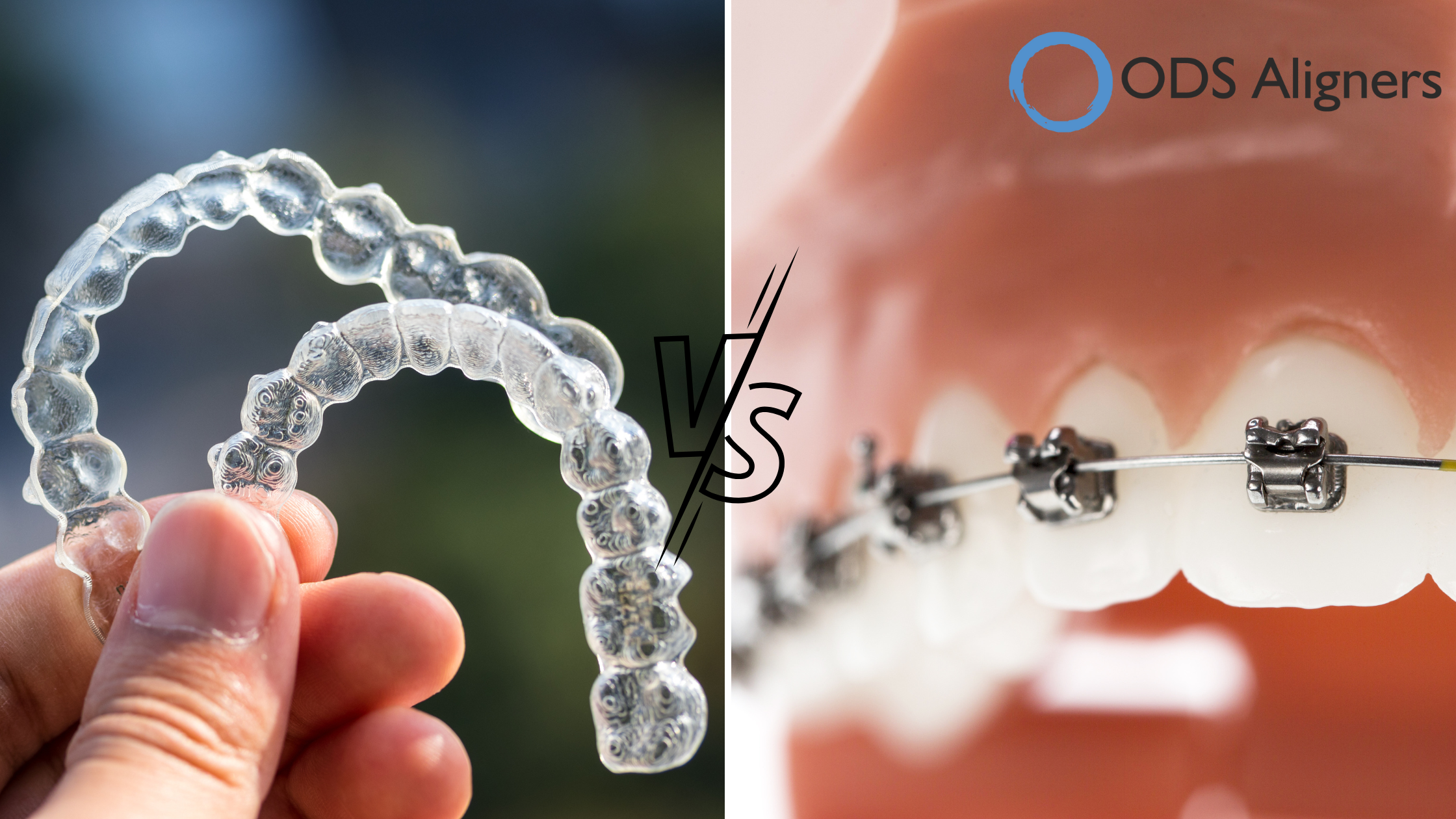This ultimate guide will delve into the pros and cons of aligners and braces, helping you make an informed decision on the proper treatment. Read on to learn more about the differences between aligners and braces.
What Are Aligners?
Aligners are orthodontic appliance that straightens teeth without using brackets and wires. Instead, aligners are clear, custom-made trays that fit over your teeth. Each tray is slightly different from the next, gradually moving your teeth into the desired position.The average treatment time for aligners is about 12 months, but this can vary depending on the severity of the misalignment. In some cases, treatment may be as short as six months. After treatment, you must wear a retainer to maintain your new smile. While considering orthodontic treatment, you may wonder if aligners or braces are correct. Both options have pros and cons that you should consider before deciding.
How Do Aligners Work?
If you're considering orthodontic treatment to improve your smile, you may wonder about the difference between braces and aligners. Both braces and aligners can achieve great results, but some key differences between the two treatments may influence your decision.Braces – Definition and working
Most people know braces as the metal wires and brackets attached to teeth to straighten them. However, there is a lot more to braces than just that. Braces are a complex orthodontic treatment that has been used for centuries to improve the alignment of teeth.So, what exactly are braces? Braces work by forcing the teeth to continue to move them into the correct position. This is done using various materials, including metal wires, brackets, and bands. The type of brace that is used will depend on the individual patient and their specific needs. Braces are usually first worn by children around 7 or 8, although some adults may also need to wear them.
If you or your child is considering getting braces, then it's important to consult with an orthodontist who can assess your situation and recommend the best treatment.
Braces vs Aligners: How do they work?
Both braces and aligners apply gentle pressure to the teeth, making them move into the desired position. However, the way this pressure is applied differs between the two treatments.Braces use brackets and wires to apply pressure to the teeth, while aligners use clear plastic trays (in series) that fit over the teeth. Each tray applies a small amount of pressure to the teeth to move them gradually into alignment. Because they don't use metal wires or brackets, aligners are much less noticeable than braces.
Pros of Aligners over Braces
While considering orthodontic treatment to straighten your teeth, you may be wondering whether to use traditional metal braces or clear aligners. Both options have pros and cons; the best choice depends on your situation.Pros of Aligners vs Braces:
Aligners, virtually invisible, are a good option for adults concerned about the appearance of metal braces. They are also removable, which can be a big advantage if you have an active lifestyle or play sports.
Aligners are generally more comfortable than braces. With no wires or brackets to rub against your gums or cheeks, they put less pressure on your teeth overall. Some people may prefer the look of braces, while others may prefer the convenience of aligners. Here are some pros and cons of each option:
Braces:
- -Are more visible, so people will know you're wearing them
- -Can be uncomfortable and require frequent adjustments
- -May require special care when eating and brushing your teeth Aligners:
- -Are less visible, so people may not know you're wearing them
- -Are more comfortable than braces and don't require frequent adjustments
- -Don't require special care when eating and brushing your teeth
Which is Right for You?
First, assess the severity of your misalignment. If you have complex dental issues, braces may be the best option. However, aligners are a better choice if you have a minor misalignment. Aligners are favorable for complex cases, also.Another thing to consider is your lifestyle. If you play sports or participate in other activities that could damage braces, aligners may be a better option. Aligners are also more convenient because they can be removed for eating and cleaning your teeth.
Finally, the cost is always a factor to consider. Braces are more expensive than aligners, but the cost will vary depending on your situation. Talk to your orthodontist about which treatment option is right for you.
The Bottom Line
If you're considering orthodontic treatment to improve your smile, you may be wondering whether to choose braces or aligners. Braces are the more traditional option and are usually recommended for more complex cases. They work by forcing your teeth to move them into the correct position. On the other hand, Aligners are clear plastic trays that gently shift your teeth into place. Both works on the same orthodontic principle.There are pros and cons to both braces and aligners. Braces are more expensive and uncomfortable, but they may be necessary for more severe cases. Aligners are less visible and usually more comfortable, but they may not be suitable for all orthodontic problems.
Your orthodontist will be able to advise you on which treatment is best for you based on the severity of your case. If you're still undecided, read on for a more detailed comparison of braces vs aligners.

 EN
EN IT
IT FR
FR